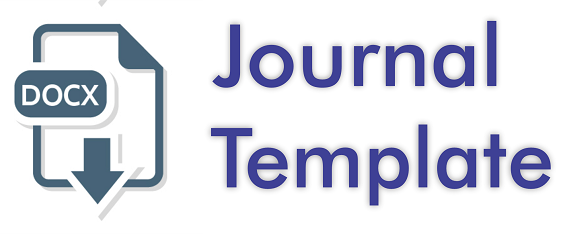Implementation Of Statement Of Financial Accounting Standards (SFAS) 112 Concerning Wakaf Accounting At The Ar-Rasyid Nabarang Baya Foundation
DOI:
https://doi.org/10.59107/ri.v3i1.65Keywords:
Implementation of SFAS 112, Waqf Accounting, FoundationsAbstract
This research aims to analyze the implementation of SFAS 112 concerning waqf accounting at the Ar-Rasyid Nabarang Baya Foundation. This research uses qualitative research methods with a descriptive approach. In this research, some information aims to describe systematically, factually, and accurately the application of SFAS 112 in the Financial Reports of the Ar-Rasyidi Nabarang Baya Foundation; the research only applies to the area studied. It uses primary data and secondary data. The data Analysis technique in this research is descriptive analysis with stages of data reduction analysis, data presentation, and conclusion. The results of the research show that the recognition aspect was found, namely that in the financial reports of the Ar-Rasyidi Nabarang Baya Foundation, it did not record waqf assets that were still in the form of we'd or promises in the financial reports; this was felt to be uncertain in the waqf. The Ar-Rasyidi Foundation's financial report does not admit any liabilities. In the measurement aspect, it was found that the measurement of waqf assets in the form of money and land in the financial statements of the Ar-Rasyidi Nabarang Baya Foundation was by SFAS 112. In the disclosure aspect, the Ar-Rasyidi Nabarang Baya Foundation has disclosed its financial reports in the Notes to Financial Reports.
Downloads
References
Ahmad. (2010). Behavioral model of compliance and evasion of zakat: A theoretical review. In Seventh International Conference-The Tawhidi Epistemology: Zakata Waqf Economy, 501-516.
Damayanti, A. (2023). Analysis of Implementation of PSAK 112 Concerning Wakaf Accounting At Nazhir Center For Productive Waqf Development MUI, North Sumatera. Journal of Management, Economic, and Accounting , 15(2), 113-132.
Fanani. (2011). Cash waqf management. Walisongo: Journal of Social Religious Research, 19(1), 179-196.
Gunawan, & al, e. (2022). Gunawan, F., Nazir's Role in Managing Productive Waqf at the Nurul Bahar Tomalou Welfare Foundation, Tidore Islands City. Indonesian Journal of Sharia and Justice (IJSJ), 199-228.
Ikram, & al, e. (2024). Management And Reporting Of Waqf Assets Based On PSAK Number 112 (Study Case At The Sulsel Ministry Of Religion). International Journal of Research and Financial Accounting (IJERFA), 1(1), 9-17.
Khairani, E., & Illahi, I. (2023). Analysis of Application of Waqf Accounting Based on PSAK 112 at The Wihdatul Ummah Batusangkar Foundation. Fin Sinergy: Journal Management Keuangan, 1(1), 43-54.
Khalil, I. A., & Shaiban, M. (2014). Waqf Fund Management in Kuwait and Egypt: Can Malaysia Learns From Their Experience. Proceeding of the International Conference on Masjid, Zakat and Waqf, 1-2.
Lamuri. (2014). Management of alkhairaat waqf in Palu, Central Sulawesi. HUNAFA: Journal of Studia Islamika, 11(2), 315-346.
Marisa, & al, e. (2022). Accountability for Productive Waqf Management in Improving Community Socio-Economics at the Indonesian Waqf Board Representative of Siak Regency. Al-Hisbah Jurnal Ekonomi Syariah, 2(1), 1-21.
Muchlis, & al, e. (2019). ). Financial Management Based on the Application of Prophetic Values. Musyarakah: Journal of Sharia Economic (MJSE), 11(2), 155-172.
Nissa. (2017). Sejarah, Dasar Hukum dan Macam-macam Waqf Tazkiyya: Wakaf Berdasarkan PSAK 112. Jurnal Ilmiah Ekonomi Islam, 18(02), 1169-1180.
Rahmatillah, R. (2022). Productive Waqf Management in Pidie Regency, Aceh Province (Challenges and Obstacles). Journal of Sharia Economics, 3(1), 34-48.
Santoso, & al, e. (2019). Analysis Of The Implementation Of Psak 112 Concerning Wakaf Transactions On The Receipt, Management And Development Of Wakaf Assets Case Study At The Indonesian Wakaf Board In Batam City. Measurement Jurnal Akuntansi, 13(2), 74-83.
Urfiyyah, K., & S.Sulistianingsih. (2021). Digital blockchain system as a strategy for optimizing zakat fund management: conceptual study. Journal of Religion and Society Studies, 17(2), 83-95.
Yaacob. (2013). Waqf History and Legislation in Malaysia: A Contemporary Perspective. Journal of Islamic and Human Advanced Research, 3(6), 387-402.
Yusra, & al, e. (2022). Bibliometric Study on Waqf Research for Poverty Alleviation 1995-2022. . At-Thullab: Journal of Islamic Studies Students, 4(1), 963-977., 4(1), 963-977.
Downloads
Published
Issue
Section
License
Copyright (c) 2024 RISALAH IQTISADIYAH: Journal of Sharia Economics

This work is licensed under a Creative Commons Attribution 4.0 International License.
License
The non-commercial use of the article will be governed by the Creative Commons Attribution license as currently displayed on http://creativecommons.org/licenses/by/4.0/. This licence allows the user to distribute, remix, tweak, and build upon the licensed work, including for commercial purposes, as long as the original author is credited.
Author’s Warranties
The author warrants that the article is original, written by stated author/s, has not been published before, contains no unlawful statements, does not infringe the rights of others, is subject to copyright that is vested exclusively in the author and free of any third party rights, and that any necessary written permissions to quote from other sources have been obtained by the author/s.
User Rights
Under the Creative Commons Attribution license, the author(s) and users are free to share (copy, distribute and transmit the contribution).
Rights of Authors
Authors retain the following rights:
- copyright, and other proprietary rights relating to the article, such as patent rights,
- the right to use the substance of the article in future own works, including lectures and books,
- the right to reproduce the article for own purposes, provided the copies are not offered for sale,
- the right to self-archive the article.
Co-Authorship
If the article was prepared jointly with other authors, the signatory of this form warrants that he/she has been authorized by all co-authors to sign this agreement on their behalf, and agrees to inform his/her co-authors of the terms of this agreement.
Termination
This agreement can be terminated by the author or RISALAH IQTISADIYAH: JOURNAL OF SHARIA ECONOMICS upon two months’ notice where the other party has materially breached this agreement and failed to remedy such breach within a month of being given the terminating party’s notice requesting such breach to be remedied. No breach or violation of this agreement will cause this agreement or any license granted in it to terminate automatically or affect the definition of RISALAH IQTISADIYAH: JOURNAL OF SHARIA ECONOMICS.
Royalties
This agreement entitles the author to no royalties or other fees. To such extent as legally permissible, the author waives his or her right to collect royalties relative to the article in respect of any use of the article by RISALAH IQTISADIYAH: JOURNAL OF SHARIA ECONOMICS or its sublicensee.
Miscellaneous
RISALAH IQTISADIYAH: JOURNAL OF SHARIA ECONOMICS will publish the article (or have it published) in the Journal, if the article’s editorial process is successfully completed and RISALAH IQTISADIYAH: JOURNAL OF SHARIA ECONOMICS or its sublicensee has become obligated to have the article published. RISALAH IQTISADIYAH: JOURNAL OF SHARIA ECONOMICS may conform the article to a style of punctuation, spelling, capitalization and usage that it deems appropriate. The author acknowledges that the article may be published so that it will be publicly accessible and such access will be free of charge for the readers. RISALAH IQTISADIYAH: JOURNAL OF SHARIA ECONOMICS will be allowed to sublicense the rights that are licensed to it under this agreement.


.png)
.png)






